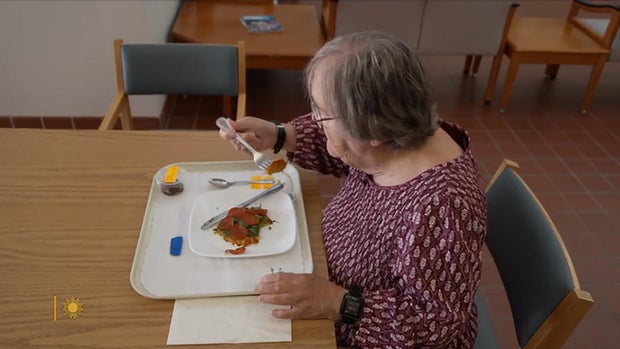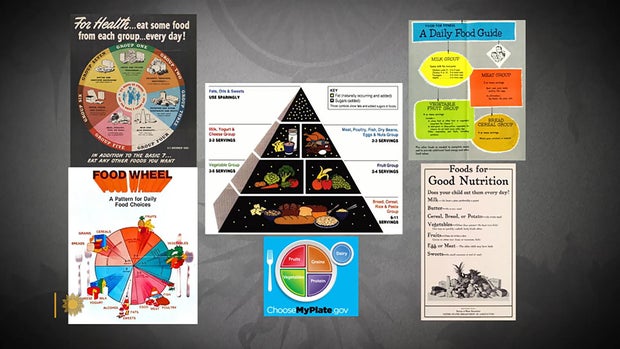CBS News
BMW, Jaguar Land Rover, VW used parts made with Chinese forced labor, Senate report finds

BMW, Volkswagen and Jaguar Land Rover have bought parts made by a Chinese company sanctioned under a 2021 law for using forced labor, a U.S. Senate investigation found, resulting in a call by lawmakers for stricter enforcement.
The automakers said in response to the Senate report released Monday that they’ve taken action to bring their cars into compliance with the law.
The Senate Finance Committee’s two-year probe revealed that BMW imported to the U.S. at least 8,000 MINI vehicles containing parts produced by JWD after the Chinese supplier was sanctioned in December for its links to China’s labor program in the far western region of Xinjiang.
The report said Jaguar Land Rover imported replacement parts including components made by JWD even after the automaker had been informed of the presence of the problematic product in its supply chain.
Volkswagen, however, disclosed to the U.S. border authorities that a shipment of its vehicles contained parts made by JWD, according to the report.
The components were sourced through two contractors — California-based Bourns Inc. and Michigan-based Lear Corp. — the latter of which is a direct supplier for BMW and Jaguar Land Rover, according to the report.
“Automakers are sticking their heads in the sand and then swearing they cannot find any forced labor in their supply chains,” said Sen. Ron Wyden, Democrat of Oregon and chair of the committee. “Automakers’ self-policing is clearly not doing the job.” Wyden called on Customs and Border Protection to “supercharge enforcement and crack down on companies that fuel the shameful use of forced labor in China.”
Jaguar Land Rover said in a statement that the subcomponent mentioned in the report “was used in a prior generation of technology and is not in current JLR vehicles for sale.” The company also said that once it was notified that the Chinese manufacturer was on the sanctions list, it immediately stopped shipment of the affected parts and all existing inventory containing the component was “quarantined for destruction.”
BMW Group said it “has taken steps to halt the importation of affected products and will be conducting a service action with customer and dealer notification for affected motor vehicles.”
Both automakers said they take protection of human rights and prohibitions against forced labor seriously.
The report points out that the U.S. has banned the use of forced labor U.S. lawmakers in 2021 passed the Uyghur Forced Labor Prevention Act, banning the entry of products made with forced labor in Xinjiang, where the Uyghurs, a Muslim ethnic group, have been persecuted for their religious and cultural beliefs.
The U.S. government has described this persecution as an act of genocide. Beijing strongly objects to this characterization, saying its efforts are aimed at countering terrorism.
In Xinjiang, China also runs employment programs that it says boost job skills and connect the local workforce with better-paying jobs in other parts of the country, but human rights advocates say participation in those programs can be involuntary.
In the U.S., lawmakers have demanded that the 2021 law be strictly enforced and have criticized the automakers for not adequately scrutinizing their supply chains to ensure compliance with the law.
CBS News
A study to devise nutritional guidance just for you

It’s been said the best meals come from the heart, not from a recipe book. But at this USDA kitchen, there’s no pinch of this, dash of that, no dollops or smidgens of anything. Here, nutritionists in white coats painstakingly measure every single ingredient, down to the tenth of a gram.
Sheryn Stover is expected to eat every crumb of her pizza; any tiny morsels she does miss go back to the kitchen, where they’re scrutinized like evidence of some dietary crime.
Stover (or participant #8180, as she’s known) is one of some 10,000 volunteers enrolled in a $170 million nutrition study run by the National Institutes of Health. “At 78, not many people get to do studies that are going to affect a great amount of people, and I thought this was a great opportunity to do that,” she said.
CBS News
It’s called the Nutrition for Precision Health Study. “When I tell people about the study, the reaction usually is, ‘Oh, that’s so cool, can I do it?'” said coordinator Holly Nicastro.
She explained just what “precise” precisely means: “Precision nutrition means tailoring nutrition or dietary guidance to the individual.”
The government has long offered guidelines to help us eat better. In the 1940s we had the “Basic 7.” In the ’50s, the “Basic 4.” We’ve had the “Food Wheel,” the “Food Pyramid,” and currently, “My Plate.”
CBS News
They’re all well-intentioned, except they’re all based on averages – what works best for most people, most of the time. But according to Nicastro, there is no one best way to eat. “We know from virtually every nutrition study ever conducted, we have inner individual variability,” she said. “That means we have some people that are going to respond, and some people that aren’t. There’s no one-size-fits-all.”
The study’s participants, like Stover, are all being drawn from another NIH study program called All Of Us, a massive undertaking to create a database of at least a million people who are volunteering everything from their electronic health records to their DNA. It was from that All of Us research that Stover discovered she has the gene that makes some foods taste bitter, which could explain why she ate more of one kind of food than another.
Professor Sai Das, who oversees the study at Tufts University, says the goal of precision nutrition is to drill down even deeper into those individual differences. “We’re moving away from just saying everybody go do this, to being able to say, ‘Okay, if you have X, Y and Z characteristics, then you’re more likely to respond to a diet, and somebody else that has A, B and C characteristics will be responding to the diet differently,'” Das said.
It’s a big commitment for Stover, who is one of 150 people being paid to live at a handful of test sites around the country for six weeks – two weeks at a time. It’s so precise she can’t even go for a walk without a dietary chaperone. “Well, you could stop and buy candy … God forbid, you can’t do that!” she laughed.
While she’s here, everything from her resting metabolic rate, her body fat percentage, her bone mineral content, even the microbes in her gut (digested by a machine that essentially is a smart toilet paper reading device) are being analyzed for how hers may differ from someone else’s.
Nicastro said, “We really think that what’s going on in your poop is going to tell us a lot of information about your health and how you respond to food.”
CBS News
Stover says she doesn’t mind, except for the odd sounds the machine makes. While she is a live-in participant, thousands of others are participating from their homes, where electronic wearables track all kinds of health data, including special glasses that record everything they eat, activated when someone starts chewing. Artificial intelligence can then be used to determine not only which foods the person is eating, but how many calories are consumed.
This study is expected to be wrapped up by 2027, and because of it, we may indeed know not only to eat more fruits and vegetables, but what combination of foods is really best for us. The question that even Holly Nicastro can’t answer is, will we listen? “You can lead a horse to water; you can’t make them drink,” she said. “We can tailor the interventions all day. But one hypothesis I have is that if the guidance is tailored to the individual, it’s going to make that individual more likely to follow it, because this is for me, this was designed for me.”
For more info:
Story produced by Mark Hudspeth. Editor: Ed Givnish.
“Sunday Morning” 2024 “Food Issue” recipe index
Delicious menu suggestions from top chefs, cookbook authors, food writers, restaurateurs, and the editors of Food & Wine magazine.
CBS News
A new generation of shopping cart, with GPS and AI

Watch CBS News
Be the first to know
Get browser notifications for breaking news, live events, and exclusive reporting.
CBS News
“All hands on deck” for Idaho’s annual potato harvest

Watch CBS News
Be the first to know
Get browser notifications for breaking news, live events, and exclusive reporting.











